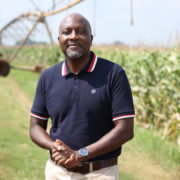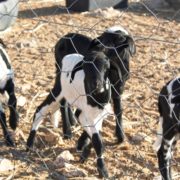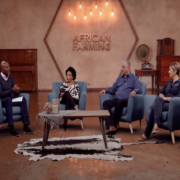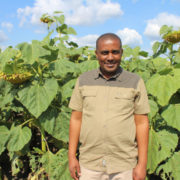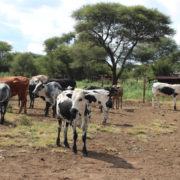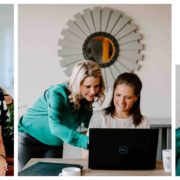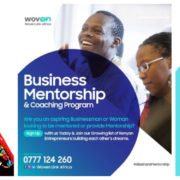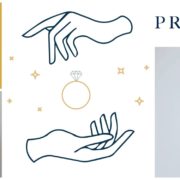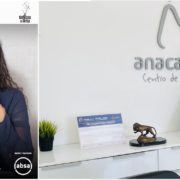By Lionesses of Africa Operations Department
Last week we painted the background to Mission Statements. A Mission Statement is far more important than many realize as it gives you, your employees, your customers, and your suppliers something to focus on and believe in when they come into work or when they deal with you. It is a concrete manifestation of why they work for you and why they deal with you. It is the ‘Why’, not the ‘What’ or ‘How’ that makes the difference.
As we mentioned last week in Part 1 (here):
“Effective mission statements balance the possible and the impossible. They give people a clear sense of the direction to profitability and the inspiration to feel they are part of something big and important.”
From Jack Welch’s book ‘Winning’ (here).
He continues in his usual direct way:
“…there is too much to lose by not getting your mission straight and
by not making your values concrete…your company will not reach anywhere near its full potential if all that is guiding it is a list of pleasant platitudes hanging on the lobby wall…Take the time. Spend the energy.
Make them real.”
Just to emphasize: “…your company will not reach anywhere near its full potential if all that is guiding it is a list of pleasant platitudes hanging on the lobby wall.”
So how do we make them real?
Looking through some of the great companies, their mission statements appear to be on another level completely and wow, they grab us and make us want to work for them, believe in them and purchase from them!
Apple (Steve Jobs): “To make a contribution to the world by making tools for the mind that advance humankind.”
Nike: “To bring inspiration and innovation to every athlete in the world.”
Under Amour: “To make all athletes better through science, passion and the relentless pursuit of innovation.”
Google: “To organize the world’s information and make it universally accessible and useful.”
FentyBeuty: “So that women everywhere would be included.” Values: “Exclude no one.”
Feel the excitement growing? The power of words! We also gave the values from Rihanna’s FentyBeauty because as Jack states, your Mission Statement is nothing without Values driving it. Mission Statement and Values – as he says: “these two terms have got to be among the most abstract, overused, misunderstood words in business…”
According to him: “A good mission statement and a good set of values are so real they smack you in the face with their concreteness.
The mission announces exactly where you are going, and the values describe the behaviors that will get you there.”
The ‘behaviors’. These are your values, but if they are not like a muscle memory, automatic and central to all you do, they will drop.
He then gives us the rule for great Mission Statements:
“An effective mission statement basically answers one
question:
How do we intend to win in this business?”
This is as he says ‘defining’. No chance of being wishy-washy there. How do you intend to win in this business.
As a reminder…Steve Jobs’ mission statement for Apple in 1980:
“To make a contribution to the world by making tools for the mind that advance humankind.”
Sticking to ‘How you plan to win in this business’ means you move away from trying to be all things to all people. Your focus increases and with it your employees’ focus too. Steve is all about ‘making tools for the mind’, not about fancy Apple Jackets or tooth mugs with Apple logos on them – ever wondered why you can’t find those? Blame Steve!
Ever the direct one, Jack’s Mission Statement was (in case you were wondering how one moves from a market capitalization of US$14 billion, to more than US$410 billion in a mere two decades):
“We were going to be “the most competitive enterprise in the world” by being No. 1 or No. 2 in every market – fixing, selling, or closing every underperforming business that couldn’t get there.”
…and no prizes for guessing…close these underperforming business units he did! But at least everyone knew where they stood.
Would the great Jack Welch be so successful in the 21st Century as he was in the 20th, as we move away from Milton Friedman’s “shareholder value” doctrine (here from the FT)? Who knows, we are children of our time, but we are all, even today, in business to win – although not at all costs. Even Jack points out that to have ‘Integrity’ as a Value is meaningless as this is simply a ticket to the game, every self respecting business has that as a Value – if you do not have that, then get off the park… business is not for you.
As Steve says: “Marketing is about values. It’s a complicated and noisy world, and we’re not going to get a chance to get people to remember much about us. No company is. So we have to be really clear about what we want them to know about us.”
“Customers relate to brands and the values it stands for more than the tangible aspects of the product.”
— Richard Branson.
Do Values have to be deep and meaningful?
Bank One has as one of their Values: “Don’t forget to say thank you.”
Many retailers have the Behavior that if a customer asks them where such and such a product is, ‘we walk the customer there…’.
This is not rocket science (and certainly not ‘deep and meaningful’), but they have to be Values/Behaviors that your employees get behind and recognize (so they have to have a large input into the process of drawing these up – unlike the Mission Statement which is the domain of those who will be fired if they don’t drive the company there, i.e. the C-Suite).
If your Values disconnect from your Mission Statement then bad things happen. Jack uses the example of Arthur Anderson (one of the Big 5 Accounting Firms) in the 1990’s, whose consulting division became too powerful and therefore pulled away from their Mission and Values as they chased the big deals – the killer blow being the collapse of Enron (Anderson too went spectacularly bust with thousands losing their jobs and millions sucked out of pension investments – tragic). These days? If there is one thing that history teaches us, it’s that we don’t learn from history…(sadly true if you think about it).
Your Values and Behaviors are absolutely essential to ground you, your employees and your company as you move towards fulfilling your Mission Statement. To fulfill this, all have to believe, all have to eat, breathe and even dream these Values, if not then believe us, you will reap what you sow as cracks appear.
Obviously Arthur Anderson and Enron were extreme and we’re not suggesting all is lost if one employee doesn’t say ‘Thank You’, but as Jack said, “…your company will not reach anywhere near its full potential if all that is guiding it is a list of pleasant platitudes hanging on the lobby wall.” – how sad is that after all your hard work, dedication and sleepless nights.
So let us build our companies the right way, let us create our Mission Statement to balance ‘the possible and the impossible’. Let us give people a clear sense of the direction to profitability and the inspiration to feel they are part of something big and important. Then strengthen and bolt it down with the company’s Values and Behaviors.
That is how we survive in uncertain times, that is how we thrive when other businesses are being dragged down; that is how we shoot the lights out and pull away from the pack when economies turn and start growing again; and that is how we truly discover and believe the ‘Why’ behind what we do. As Simon Sinek said about your Why in our Part 1 (here) – “Your purpose, your cause, your belief. Why does your organisation exist? Why do you get out of bed in the morning and why should anyone care?”
Now is not the time to be shy – shout it from the rooftop!
Stay safe.

